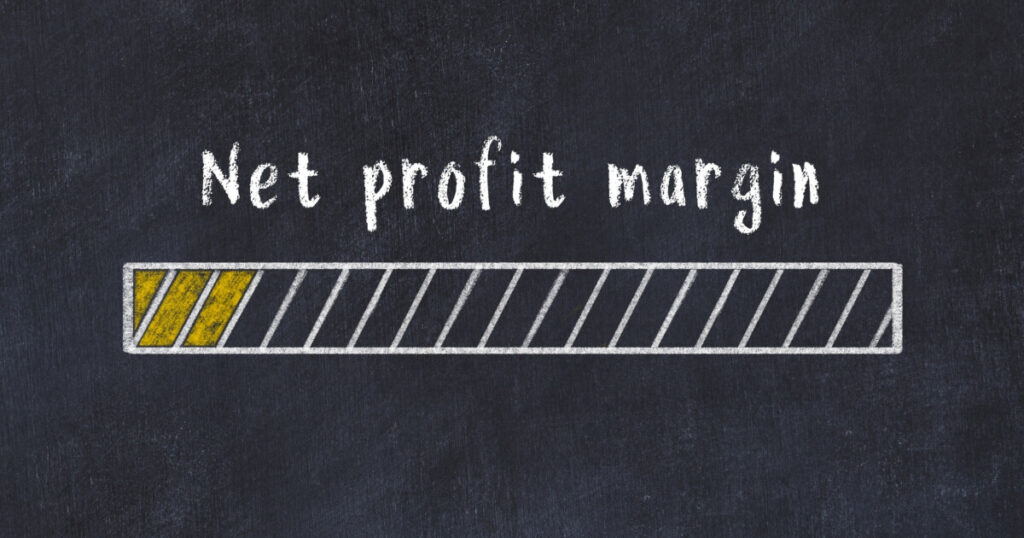Discount stores play a significant role in meeting the price-conscious demands of consumers. They are a great option when faced with inventory challenges. Even high-end brands use discount retailers as a way to quickly deal with excess inventory, freeing up capital and inventory space.
Considerations for Manufacturers and Suppliers Selling to Discount Retailers
In our previous article on brands and discount stores, we learned that selling inventory to discount stores can be a great way to clear excess stock, improve cash flow, increase brand exposure, and reduce losses. However, it’s important to weigh the pros and cons before making a decision. Manufacturers and suppliers should consider the following downsides and considerations:
Reduced Profit Margins

Discount stores typically negotiate lower prices, aiming to sell products at a significant discount to attract price-conscious customers. As a result, the profit margins on the inventory sold to them are often lower compared to selling at full price or through other channels.
Brand Perception
Depending on your brand positioning, selling inventory to discount stores might affect the perceived value and exclusivity of your products. If your brand is associated with premium or high-quality items, selling in such stores may dilute that perception and potentially harm your brand image.
Potential Channel Conflicts
Distributing inventory to discount outlets might create conflicts with other sales channels, such as traditional retail partners or e-commerce platforms. These conflicts can arise if these partners perceive your products as direct competitors with their offerings or if they have specific agreements regarding pricing or exclusivity.
Cannibalization
Offering products at reduced prices through off-price retailers can potentially cannibalize sales from other distribution channels, such as your own retail stores or e-commerce platform. This can lead to a shift of sales from higher-margin channels to lower-margin off-price retailers.
Lack Of Control Over Pricing
Discount retailers typically have control over pricing decisions and may choose to further reduce the prices of your products to attract customers. This lack of control can impact your perceived value and profitability.
Risk Of Brand Positioning
If the discount retailer does not align with your brand’s target audience or values, selling inventory through them might lead to misalignment or mismatches with your intended market positioning.
Potential Conflicts With Other Distribution Partners
Selling inventory to discount stores can create conflicts with other distribution partners, such as independent retailers or distributors. These partners may perceive it as competition or favoritism toward discount retailers, potentially straining relationships and affecting overall business partnerships.
Higher Volume Requirements
Discount stores often have high volume requirements to ensure their stores are well-stocked and to meet consumer demand. Manufacturers and suppliers may face challenges in meeting these requirements, especially if they have limited production capacity or inventory availability.
Brand Equity Erosion
Repeated exposure to discounted prices can erode a brand’s equity over time. Customers may start associating the brand with lower value and expect discounts in future purchases, making it challenging to maintain premium pricing and profitability.
Inventory Management Challenges

Selling to discount retailers often involves larger quantities and shorter lead times, which can present challenges in terms of inventory management, logistics, and supply chain coordination. Ensuring the availability and timely delivery of the required inventory can be more demanding.
Dependency On Discount Retailer’s Success
Manufacturers and suppliers become reliant on the success and longevity of the discount retailer they choose to partner with. If the discount retailer experiences financial or operational challenges, it can directly impact the manufacturer’s sales and overall business performance.
Want to know the value of your inventory?
How an Overstock Rep Firm Can Help You Mitigate Risks and Sell Excess Inventory
While there are risks, teaming up with an experienced overstock representative can be highly valuable in managing and reducing those risks.
When selling excess inventory to discount retailers, having the expertise of an overstock rep who understands the nuances among different discount retailers becomes essential. This section emphasizes the significance of partnering with experts like Overstock Trader, who are knowledgeable about these distinctions.
Expert Knowledge Of Discount Retailer Environment
An experienced overstock rep firm possesses comprehensive knowledge about the diverse environment of discount stores. They understand the varying business models, customer demographics, pricing strategies, and product preferences of different discount retailers. This expertise allows them to guide manufacturers and suppliers in making informed decisions about which off-price stores are the best fit for their specific surplus inventory.
Maximizing Recovery Value

Partnering with an overstock rep firm that knows the differences among discount retailers, manufacturers, and suppliers can maximize their recovery value.
The rep firm can assess the characteristics of the overstock inventory and match it with the most suitable discount retailer, optimizing the chances of a successful sale. This targeted approach increases the likelihood of achieving higher prices and reducing losses associated with excess inventory.
Strategic Distribution Channel Selection
Not all discount retailers are created equal. Each has its own target market, pricing structure, and product assortment.
An overstock rep firm knowledgeable in discount retailers can assist manufacturers and suppliers in selecting the right distribution channels that align with their brand positioning and inventory characteristics. This strategic selection ensures that the overstock inventory is placed in outlets where it will generate the most interest and appeal to the target customer base.
Negotiating Favorable Terms
Working with an overstock rep firm that understands the differences among discount retailers provides a competitive advantage during negotiation processes.
The rep firm’s insights into the pricing expectations, volume requirements, and terms and conditions of various discount retailers enable manufacturers and suppliers to negotiate more effectively. This can result in better terms and conditions for selling the overstock inventory, improving overall profitability.
Mitigating Brand Perception Risks
Discount retailers may have varying impacts on a brand’s perception and image.
An overstock rep firm that comprehends these differences can help manufacturers and suppliers mitigate potential risks to their brand. By strategically placing inventory in discount stores that align with the brand’s values and target audience, the rep firm ensures that the brand’s image remains intact and that customers perceive the discount retail channel as complementary rather than detrimental.
Expanding Market Reach

Working with an overstock rep firm knowledgeable in discount retailers expands manufacturers’ and suppliers’ market reach.
The rep firm’s understanding of the strengths and weaknesses of different discount retailers enables them to tap into new customer segments and geographical markets. This broader market reach increases the chances of selling the overstock inventory, reducing storage costs, and generating additional revenue streams.
Industry Insights And Trends
An overstock rep firm that specializes in discount retailers stays up-to-date with industry insights and trends. They can provide manufacturers and suppliers with valuable information about emerging discount retail concepts, consumer preferences, and market dynamics. This knowledge empowers businesses to adapt their inventory management strategies and align with evolving market demands effectively.
Conclusion
In conclusion, selling excess inventory to discount stores can bring benefits like clearing surplus stock and enhancing cash flow, but it also carries challenges such as reduced profit margins and potential conflicts with other partners.
Ultimately, the decision of whether or not to sell to discount stores is a complex one that should be made on a case-by-case basis. Manufacturers and suppliers should carefully weigh the pros and cons, and consider partnering with a professional firm like Overstock Trader to minimize risks and maximize benefits.
Frequently Asked Questions
What is the difference between a promotion and a marketing campaign?
A promotion typically refers to a short-term incentive or offer aimed at boosting sales or customer engagement. It can be a part of a larger marketing campaign. A marketing campaign, on the other hand, is a more comprehensive and strategic effort that involves various activities to achieve specific marketing goals, which may include promotions.
How can I encourage customers to buy by offering discounts and promotions?
You can encourage customers to buy by creating a sense of urgency with limited-time offers, providing clear and attractive discounts, promoting your offers through various marketing channels, and ensuring that the value of the discount is communicated effectively to your audience.
Why do many brands offer discounts on certain products as part of their marketing strategy?
Brands offer discounts on certain products to attract new customers, entice repeat business, clear excess inventory, and create loyalty among their customer base. It can also help increase sales during specific seasons or events.
How can I create loyalty among repeat customers using discounts and promotions?
To create loyalty among repeat customers, offer exclusive discounts or rewards programs, ensure a seamless and satisfying shopping experience, communicate regularly with personalized offers, and focus on providing value beyond just discounts to make customers feel appreciated and satisfied with their purchases.
What are some tips for offering discounts effectively?
When offering discounts, it is important to be strategic. Consider your target audience and what types of discounts would be most appealing to them. Additionally, be sure to promote your discounts effectively so that customers are aware of them.

